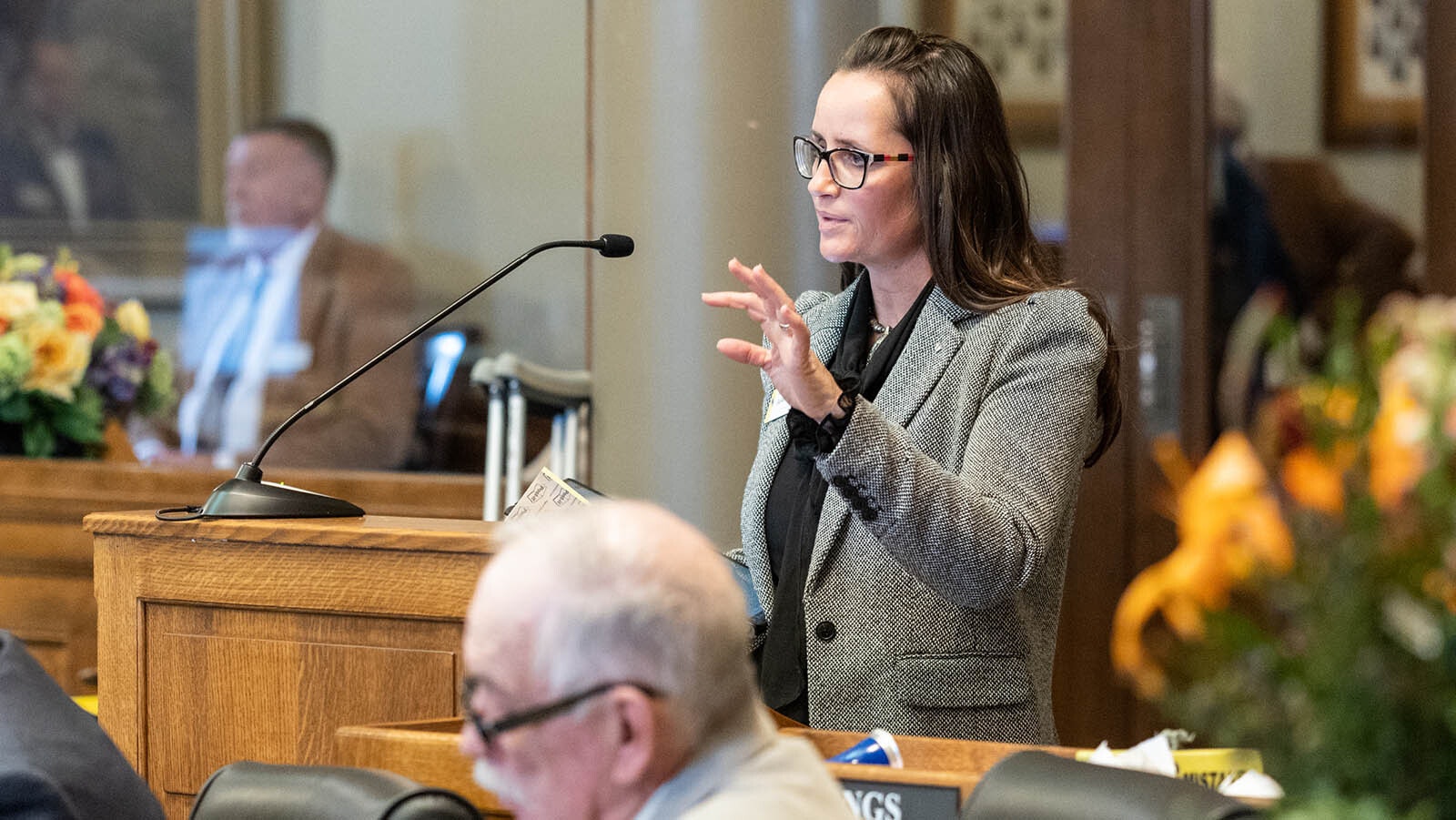State Rep. Sarah Penn, R-Riverton, wants to protect women and children by expanding Wyoming’s obscenity laws on creating and distributing pornography.
Penn is proposing a bill that, if passed, would expand the state’s obscenity laws by addressing specific types of pornography and penalties for scenarios where children have been exposed to it on the internet.
The production and dissemination of pornography as a whole is already illegal in Wyoming, aside from publications of “literary, artistic, political or scientific value,” or applications performed in the course of law enforcement and judicial activities.
Penn’s bill, titled “Pornography and Obscentity-Crimes and Penalties,” would specifically add “visual depictions of rape or sexual abuse” to what is considered “obscene material” under the law.
Currently, obscene sexual conduct in Wyoming is limited to depictions people will likely find “patently offensive.”
Penn said the addictive nature of porn transfers the images of these acts portrayed on a screen into people’s real lives.
“This industry lines its pockets when it leaves this content up and they hook minors,” Penn said. “This bill attempts to help them feel the effects of their decisions by way of their pocketbooks.”
And sometimes these pornographic acts are not staged. Productions of rape and child pornography continue to be a growing problem, with many websites allowing users to submit their own content, then making little effort to remove it.
Penn said she is bringing her bill as a way to decrease the rate of this type of content being available on internet porn sites.
“We need to protect our children and those victims of abuse who may continue to be victimized when these images are uploaded,” she said.
Perception
To most people, a depiction of rape or sexual abuse would likely already qualify as obscene material, but that’s not enough, Penn said.
Sitting through a few Wyoming library board meetings recently, Penn said she heard some people defend books containing graphic written and visual descriptions of these types of acts as not being offensive.
“These things are obscene, whether written or visual, and I believe Wyoming should make that statement,” Penn said in an email. “Let it be black and white, no questions.”
Penn’s bill would only pertain to content published to a website and would have no impact on school library books, a topic that was addressed in similar legislation in 2023.
Increased Penalties
The bill also increases penalties for people convicted of publishing obscene material on the internet.
Current law states that if pornography produced or disseminated in Wyoming is viewed by an adult, the person found guilty of producing or disseminating it can receive up to a year in prison and $1,000 in fines. If that pornography is accessed by a child in Wyoming, the penalty is a fine of up to $6,000 and a year in prison.
Penn’s bill greatly increases those punishments, with a fine of up to $1,000 for each day the material is accessible on the internet, and $6,000 for each day it was actually accessed by a child.
The legislation also directs the Wyoming attorney general to provide a way for people to report internet porn, which the state attorney general can then pass off to the U.S. Department of Justice as federal violations of child exploitation and obscenity.
Under the new bill, a person who publishes material to minors on an internet website where more than a third of the content is considered harmful to minors shall be found guilty unless they use reasonable age verification methods to verify the age of the person trying to access the material.
What is considered reasonable age verification are methods that use government-issued identification or any other procedure that reasonably relies on public or private data to verify the age of a user.
Any site found guilty of retaining personal identification material shall be found guilty of a misdemeanor carrying up to a $1,000 fine.
Leo Wolfson can be reached at leo@cowboystatedaily.com.





